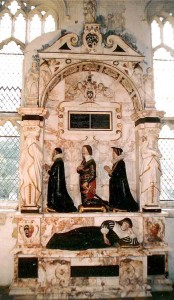The harrowing of hell
The story so beloved of medieval mystery plays
around Christ’s harrowing of hell has a complex and much disputed history. There
are two primary interpretations of the spirits in prison: either they are the
disembodied spirits of Noah’s contemporaries imprisoned in Hades, who in
rabbinic tradition are excluded from resurrection, or they are the fallen
angels of Genesis 6.1-6 [the majority view, and one which some rabbinic
material alludes to.]
 The expansion of the latter suggestion dates
back to the Book of the Watchers, a 3rd or 2nd century BC comprising the first 36 chapters of
1 Enoch 36, embellishing Genesis 6. The tradition includes a punishment through
flood for such miscegenation, so it is possible to read it in this way.
However, allusions to Christ preaching to those who died in the old dispensation
occur in the early 2nd century Shepherd
of Hermas, one of the so-called Apostolic Fathers and in the apocryphal
Gospel of Peter and Odes of Solomon.
The expansion of the latter suggestion dates
back to the Book of the Watchers, a 3rd or 2nd century BC comprising the first 36 chapters of
1 Enoch 36, embellishing Genesis 6. The tradition includes a punishment through
flood for such miscegenation, so it is possible to read it in this way.
However, allusions to Christ preaching to those who died in the old dispensation
occur in the early 2nd century Shepherd
of Hermas, one of the so-called Apostolic Fathers and in the apocryphal
Gospel of Peter and Odes of Solomon.
Underlying both traditions is the
Christological theme of the victory of Christ, and his Lordship over all that
is above the earth, on the earth, and under the earth. The detail can be
endlessly argued about, though Hades/Sheol is clearly the place of the dead in
general rather than a place of final [and often eternal] punishment
post-judgement.
In summary, the tradition, carried on widely
through the Middle Ages and then falling into disrepute in 16th Protestant
Europe, celebrates the power of Christ to save, the comprehensive reach of that
salvation, the justice of God’s salvific acts in potentially incorporating all,
and the cosmic dimensions of the battle between good and evil. Maybe it is time
to recover this celebration for the Saturday of Holy Week, rather than simply
going shopping for Easter eggs in a consumerist anticipation of the return of
spring!
